Mashrou’ Leila on Their Wildest Concert Experiences: Boxers Thrown on Stage, Magical Pizzas, and the Perfect Sunset
Mashrou’ Leila is currently on their 5th consecutive year touring globally, yet most of the coverage out there mentions the music by way of controversy, instead of the other way around. These are the stories they haven’t told, because they haven’t been asked. We talked to the band about being pigeonholed as a political band, their wildest concert experiences—boxers thrown on stage, magical pizzas, and the perfect sunset.
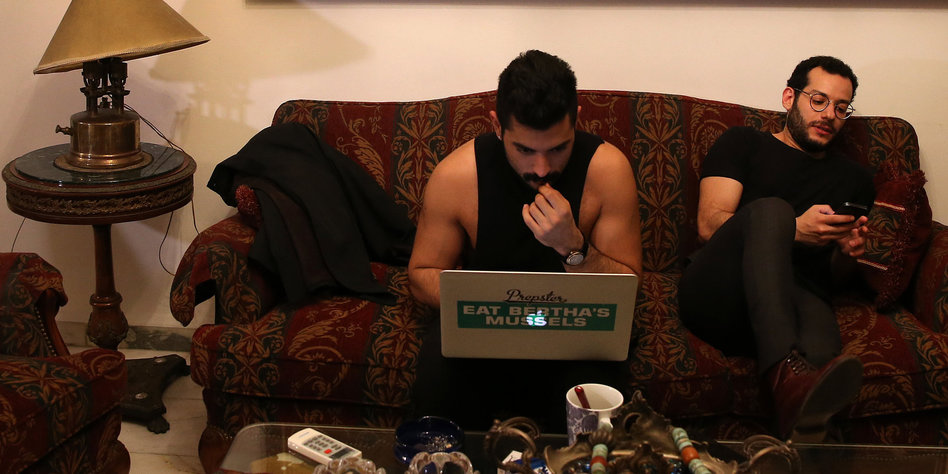
We sat down with Mashrou’ Leila’s guitarist Firas Abou Fakher, and lead singer Hammed Sinno. A conversation about the band’s future—new music, writing in English, and getting into acting.
Q: What’s the funniest/weirdest thing that has ever happened during a show or after?
HAMED: Honestly, a lot of really weird stuff happened. Someone threw a really nasty looking pair of male boxers onto the foot of the stage once. At the time we, weren’t sure what it was. We kind of like walked towards it then saw it. Yeah, it was horrible.
Q: Woah, that’s intense!
HAMED: I don’t know, I just wasn’t willing to touch it. There was another time in DC, we found a pizza inside Carl’s hotel room, although the “do not disturb” sign was up, and none of us had ordered a pizza. So basically, someone seems to have walked into the hotel, not notifying reception or anything like that, gone into Carl’s room, left a pizza…with one slice missing. It was just so fucking weird.
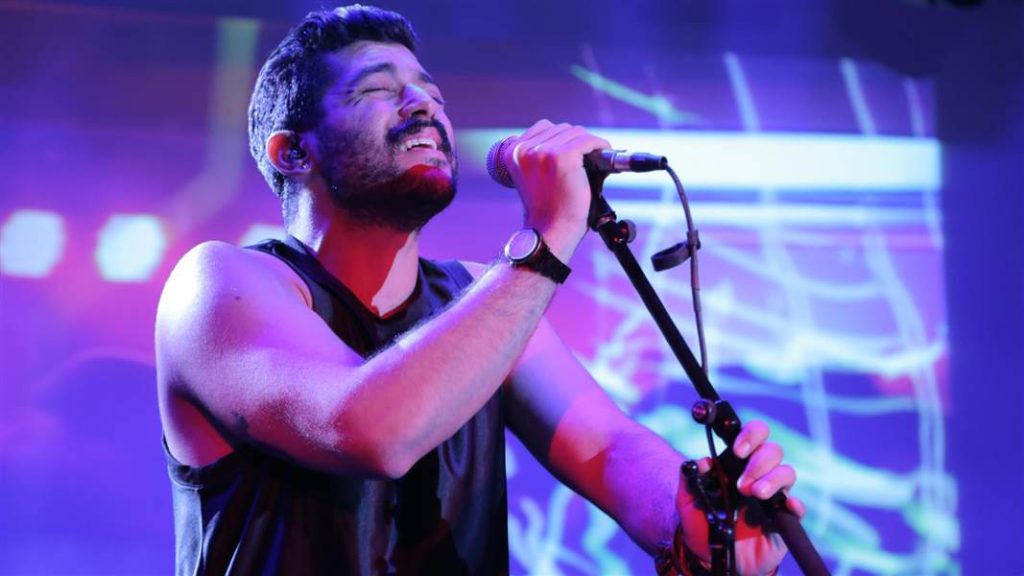
Q: So, did you guys eat the pizza?
HAMED (laughing): I think Carl had a slice before he knew what was happening. He just assumed that our tour manager had dropped off a pizza in his room. But yeah, I think he had a slice! Oh, and he survived. Nothing was wrong with it.
Q: What’s your favorite show of the tour so far? I’m curious to see if you have the same answer.
FIRAS: On this tour our London show was pretty particularly nice for me. It was a very special show. It was kind of a big festival. We hadn’t played in London for almost two years. The setting was really nice. It was a courtyard of a really old building. Just an all around pretty cool experience.
HAMED: This tour was London, honestly. A lot of great accidents at the same time. It was supposed to rain. It was an outdoor concert. We’ve been getting a lot of that actually; rain, during our gigs. So it actually started raining and then it cleared up, right before we got on stage. And by that time, I was so scared for the first, like, three songs that my eyes were closed. I was kind of looking at the audience as little as possible. But then by the time we get to “Falyakon,” which is probably halfway through the gig, my eyes were completely open, and there was the most incredible sunset I’ve ever seen in my life. Everyone there could see it. It was amazing, the sound was incredible, and the crowd was ridiculous. It was such a good concert. It was so much fun for us.
Q: Why were your eyes closed? What were you scared of?
HAMED: Oh no, it’s just generally frightening; getting on stage and seeing 5,000 people. It’s overwhelming, but I’m a performer. I’m supposed to look like I’m comfortable. It’s bullshit, but it’s not really bullshit, because it’s by definition what a performance is. Acting like everything is great.
Q: What was the crowd like [in London]?
HAMED: Very diverse. It was so good. It was such a—really, I can’t. Everyone was very energetic. When the crowd is really energetic, they give you a lot of energy. It becomes this beautiful thing. I don’t mean energy in a new-agey way, I just mean like, literally, they make you feel like they’re really excited, so you get excited, and then it just goes on. They all knew the lyrics, which was also awesome. And it was packed.
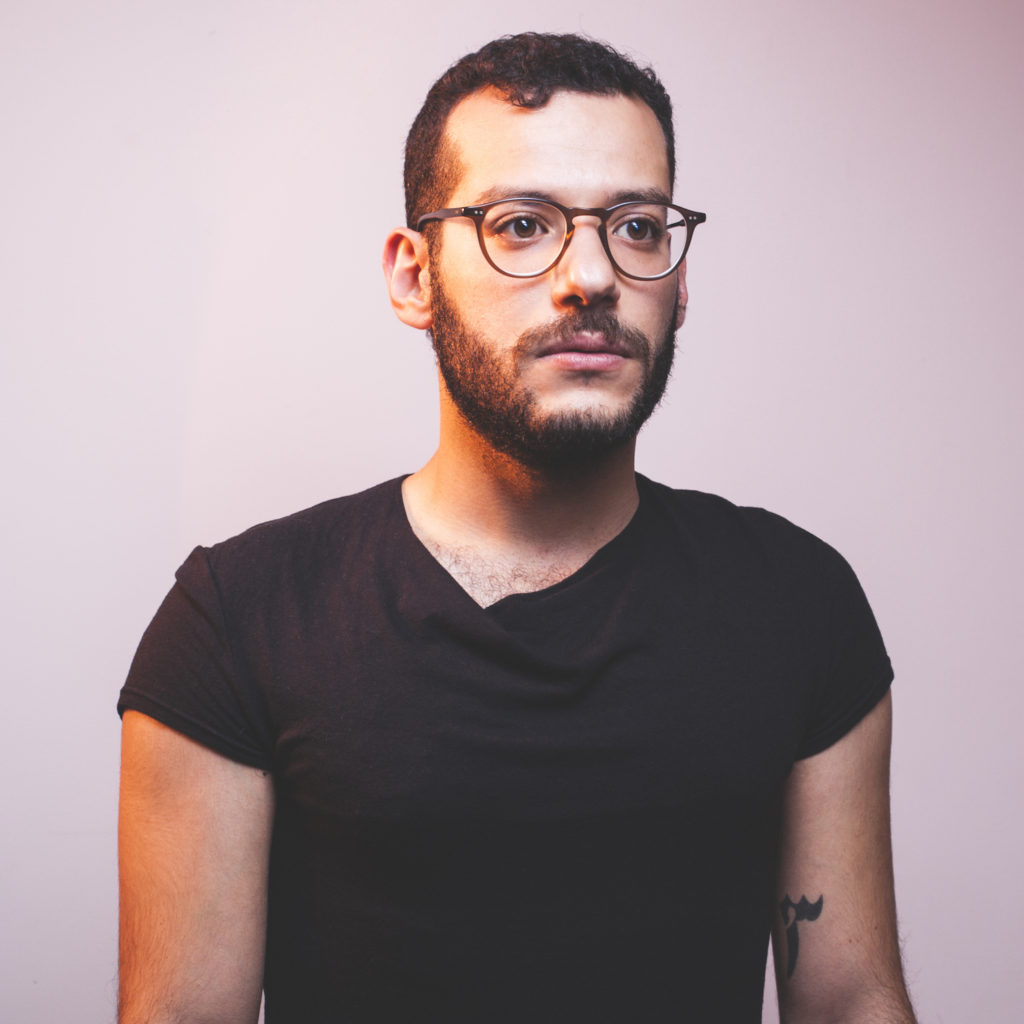
Q: Do you ever feel pigeonholed into this Pocahontas place where you have to be an ambassador from the East to West? Is that still an issue you feel like you have to deal with a lot?
FIRAS: Sometimes, I guess. It’s a voice, so people find it exciting when you tell them that you can do something about the Middle East.
Q: How did you guys come up with the name for the band?
FIRAS: Just, by mistake.
Q: Really?
FIRAS: Yeah! Just sitting around tryin’ to figure out how to come up with a name.
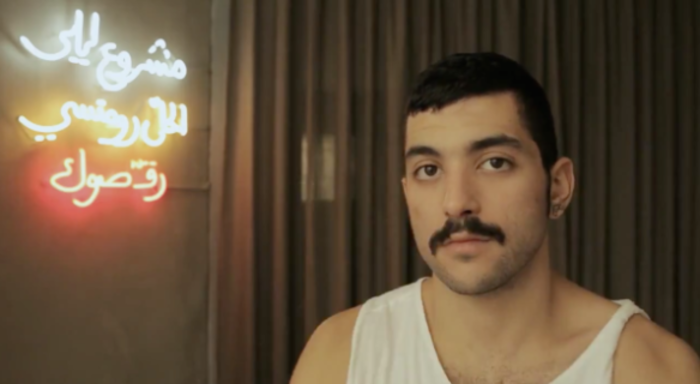
Q: Do you guys ever think about writing in English or is there something about Arabic that you find compelling that makes you want to keep writing in it?
FIRAS: Of course we’ve thought about it, you know. I think that it could be something that we’d be interested in doing, just creatively. Put on a different mask, maybe open up a new door for us creatively, in that sense.
HAMED: Yeah, I think I’m pretty much there. But also we’d have a wider audience, it feels like it’s possible to potentially, really f*** sh** up. Honestly, and this is going to sound really cheesy but I’m just gonna say it anyway. I’ve always had this lifelong dream of getting music in Arabic on international charts. Where you have a song that’s in Arabic that isn’t on top of you know a “world’s music” chart, or something like that. Because I think it’s an incredible language, and I would like for it to travel a lot better. I think it traveling a lot better would do all sorts of things for people not getting stopped in airports for saying “inshallah.” But it feels like we’re at a place where we could potentially get more people exposed to the culture by writing something in English.
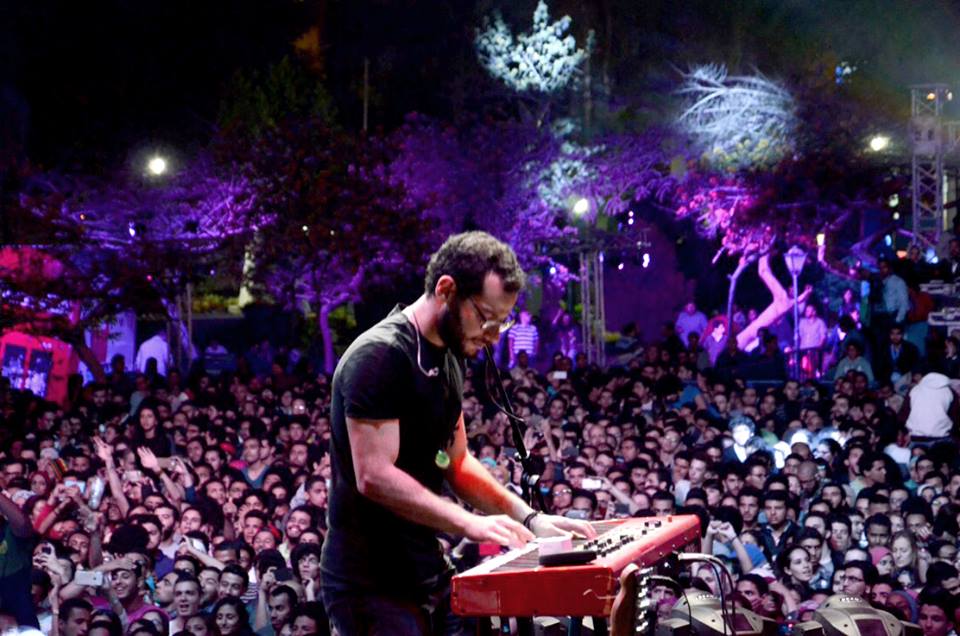
Q: You could also play with mixing the two languages.
HAMED: Hell. No.
Q: No???
HAMED: No. I hate those songs that are like, one line of English, one line of Arabic, and you’re like what the f*** is he/she doing, no. I hate that stuff. I find it so performative! It’s so obviously forced. You can’t take any of the lyrics seriously because you’re like, why are you code-switching every five words.
Q: I would like for Arabic everything to be a little bit more mainstream. For it to not make you this “other” would be really cool.
HAMED: It would be. I just don’t know if the right way to do it would be to play a couple of songs in English, because, I mean you know what it’s like, in the Arab world as well, right? You end up getting so much smack, for–it’s a really really really weird–oh my God why are you doing something in English?
Q: What’s your favorite thing about writing in Arabic?
FIRAS: The potential actually. The fact that there’s so much that hasn’t been done in Arabic music. It hasn’t been explored to the same degree that English and Western music has. In terms of language of course, but also in terms of musical experimentation.
Q: What are your biggest influences?
FIRAS: It changes. A lot of the influences don’t come through in music actually. I listen to a lot of–the big ones are always staying around — the folk, like Bob Dylan, and the Beatles, Leonard Cohen. Stuff that doesn’t really come through in the music apart from the feeling that it needs to be genuine and honest and simple, I guess that’s where that comes from.
Q: Did music change your relationship with your family? Was there a time where you guys weren’t touring, and you weren’t successful, but there was a lot of controversy, and you thought, should we not do this?
FIRAS: We worked. Tryin’ to keep the band running, and have a career, just kind of, making some money I guess. At some point the band just took over. Things were getting better, we were able to say, you know what, it is time to take the leap. And things worked. We took that risk. We said we’d give it a year, a year and a half. If things don’t work, we’ll get back to employment. But things worked, and we never looked back. And then, you know, I guess our families, they saw that things were snowballing, there hasn’t been much resistance. I guess I’ve been lucky.
Q: Was there ever a time at a show where you were worried if you were safe?
FIRAS: After the Paris Attacks happened, two years ago almost, we had a big show lined up in London at the Barbican. We were very worried, f***, this is gonna be shown live. Sometimes our paranoia gets the better of us. Thankfully nothing has happened, but the thing is it’s not a risk just in the Arab world. It’s a risk anywhere you go play. What happened in Orlando can happen at any of our shows. What happened in Paris can happen in any of our shows. We ask for pat-downs, checks. We try to be as safe as we can, obviously. But yeah, there has been fear. Sometimes, we will be worried, a little bit.
Q: Do you have tattoos?
FIRAS: Yeah, of the band’s logo.
HAMED: Firas and I both have the same tattoo in different places.
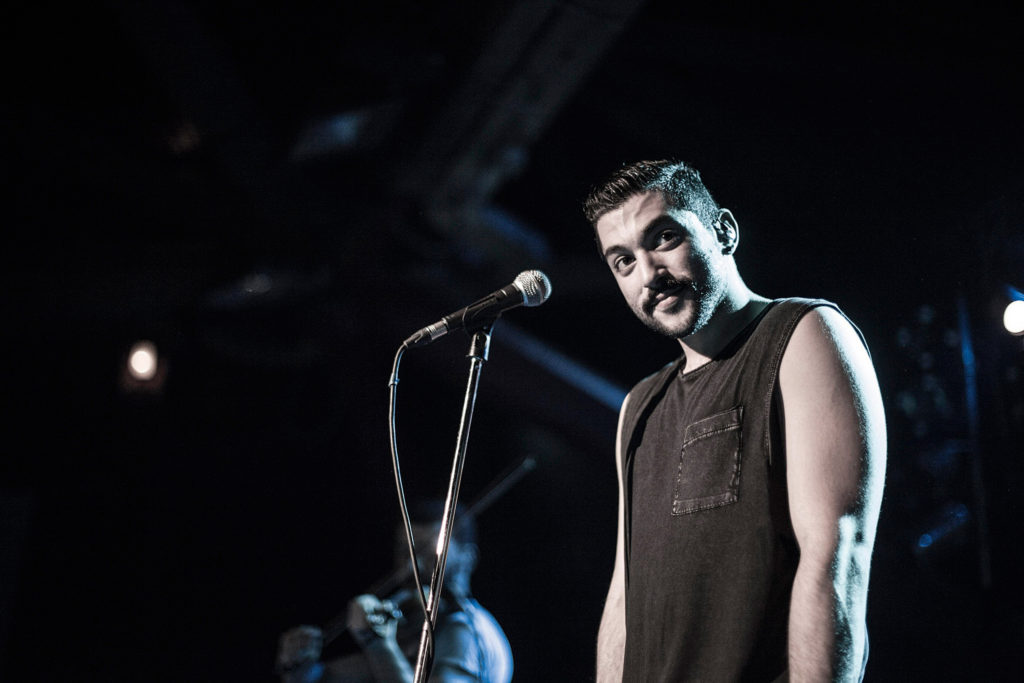
Q: You got that tattoo much earlier than when you knew if the band was going to be popular.
FIRAS: Yeah. At some point, maybe four years ago, things were looking up, and even if it wasn’t looking up, does that mean that I would stop at this point? I don’t think so.
Q: That makes sense to me. It’s a big day when you realize you can’t really stop doing your art.
FIRAS: Yeah. I mean that’s what I want to do. That’s what I like to do. I also have an eye tattooed on the palm of my hand.
Q: Is that like an evil eye thing?
HAMED: Sort of, but not really. It’s sort of like the hand of Fatima, like the hemsa. But basically the first time I fell in love, I was reading Rabih Alameddine’s “The Hakawati” and there was a whole section in it about the hand of Fatima. So then, after it ended and I got all sorts of messy, I guess when I got my shit together I decided to get a tattoo. And I wanted something from the book.
Q: That’s super surprising that you would get a tattoo after you guys were broken up.
HAMED: Cause it was really messy and I had to pull myself through a lot of shit. Like I picked up an eating disorder, and ended up in the hospital. I guess as soon as I sort of decided to get my life together I wanted something to immortalize that.
Q: How did your family feel about you getting a tattoo?
HAMED: (laughs) No. My relationship with my family is not that kind of relationship. I do me. There’s no permission taking, you know what I mean. It’s a choice that I made, then it’s a choice that I made. I come from a generally liberal family. You know, religion was never part of our life. They tend to be quite supportive for the most part. Which is great.
Q: That’s great, and it’s not everywhere.
HAMED: I know, that’s not typical.
Q: Do you see yourself doing anything other than music?
HAMED: I recently got approached about acting for a couple of parts and considered it. Haven’t made my mind up. Ideally once I’m done, if the band at some point decides to stop making music I’ll probably just go back to school and get into academia. I think that’s what I want to do.
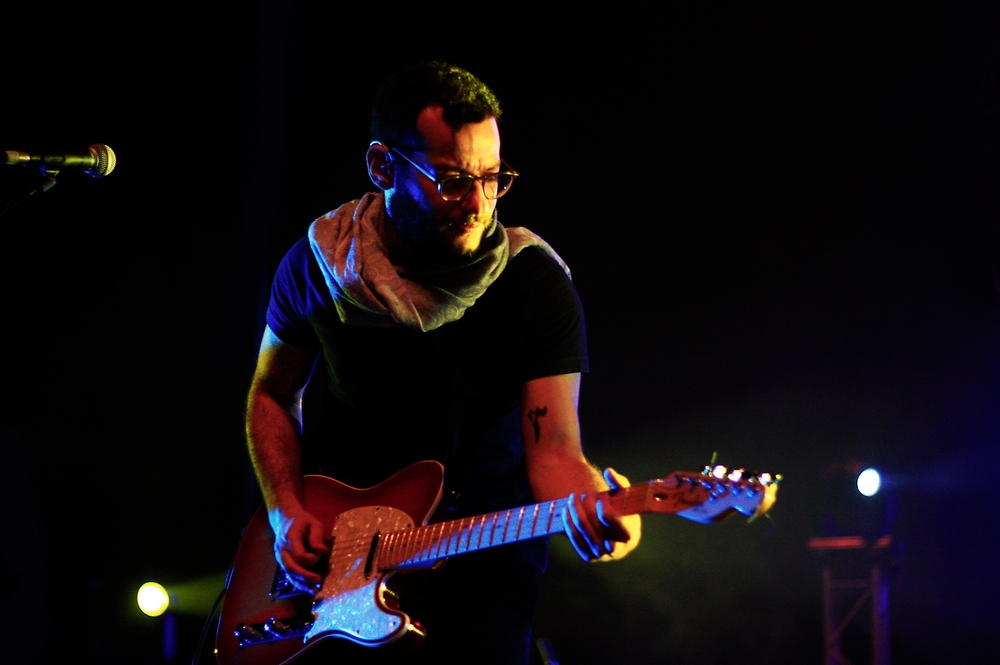
Q: What’s your favorite old school Arabic music?
FIRAS: I mean, I listen to a lot. I listen to a lot of Asmahan, Abdel Halim especially. Abdel Halim was cool for me because it was almost the French influence getting into Arabic music with him which I find really cool. A lot of Oum Koulthoum and Fairouz, obviously. I grew up with Fairouz everyday on the bus to school, so, I mean I listen to a lot. I mean, all of Arabic music, but SOBKILLS got me into contemporary.
Q: Are you guys working on a new album?
FIRAS: We’re writing new material. I don’t know, what we’re interested in doing this time. If it’s gonna be an album or a collection of songs, I don’t know what it is, but we’re, we have material, we’ve been writing material for a while. We’re trying to advance, get it its own identity, get its own shape, things like that,
Q: Does your performance and the crowd’s reaction to it change in more liberal vs. more conservative cities?
HAMED: Not so much anymore. I think at the beginning I used to get a little scared being up there. But no, at this point the performance itself is the same show every time. That’s kind of the point. Pre-planned. There’s very little room for spontaneity apart from what I’m saying in between songs. Which tends to be very problematic I think. Because I kinda run my mouth a lot. Okay, I shouldn’t call it running my mouth. I’ll give myself a little bit more credit than that but I guess I’m a pretty kind of traditional person.
Q: So nothing changes. So I guess it used to more? Because maybe you were a little more scared? A lot of what you guys write about is pretty controversial. Even socially.
HAMED: Look it’s been–the thing is, it’s just been a decade. So I mean by the time we’re playing a concert, it’s people that know our music. We don’t quite often play any shows where, they’re open to the public. For the most part by the time we’re on stage, the audience is going to be people who have bought tickets, right, so at which point there isn’t really a lot to admit to the audience.

Q: Was that ever scary, or is it less scary now that you’ve garnered some success? You write pretty bravely.
HAMED: I don’t think there’s anything particularly brave about the lyrics. I guess that means we’re not particularly brave, just stupid. But at the beginning, no, I actually feel like the prejudice has gotten worse with time.
I feel like at the beginning I remember there was this one time when we were playing a show in this city to the south of Beirut, this other coastal city, that is fairly conservative. We were playing this festival gig thing. Then we get up there, we play the set and, this was way back when, in 2009 or 2010. So we get to the part where we’re supposed to play ‘Shim el Yasmine’ and I’m literally thinking, ‘oh my God, I’m going to get shot,’ and then, it goes over really well. The audience reacts fairly well to the song. Versus 10 years later, still can’t in Jordan. It’s a bit of an issue. I feel like as the band gets more exposure, the prejudice has been getting worse actually.
Q: Intuitively you would think it’d be the other way around. But I guess it kinda makes sense.
HAMED: Yeah, I guess the more exposure you get…
Q: You should take it as a compliment.
HAMED: I’ll try.
Q: What’s it like singing to a crowd that understands Arabic, versus one that doesn’t? What do those experiences feel like?
HAMED: It’s always great playing gigs abroad, but nothing feels as good as playing in the Arab world for some reason. We have great gisg there. It feels…it really does feel like nothing else. Because we grew up there and so much of the music is about Lebanon, and about (hopefully) the Arab world. And you’re playing to an audience of people that are necessarily directly implicated, whenever you’re playing in the region. That’s why things like Jordan really piss me off. It just feels like, you know, these are the audiences that we’re thinking about when we’re writing.
Not that your intended audience ever really should change anything. It’s just something that you have in the back of your mind. But I do quite often wish more people could understand it. We’ve been touring so much recently that it feels like, we’re getting a wider, a big audience. It’s been on my mind the last couple of years–should we write in English? I haven’t been able to make my mind up about any of that stuff.
Q: You wrote this stuff that gives a voice to a lot of people that either are voiceless or unwilling to express certain things that openly. And I’m wondering, does that feel good, or do you ever just get tired of that lens on your work?
HAMED: I don’t feel like that’s really the sort of stuff that what we do. I don’t think anyone is really voiceless. I think a lot of people choose not to address certain stuff and that’s their prerogative and they’re entitled to do that. I think a lot of people have been discussing a lot of stuff, and that’s been ignored. I think I’m quite sensitive to the word “voiceless” because I see it a lot when I hear people talk about women in particular, in the Middle East.
Women have been saying shit forever. And you end up getting these international NGO’s saying “we’re giving them a voice.” It’s all sorts of wrong. I don’t think that’s what we do. We just write about our own lives. I write about my life. I write about things that I’m thinking about. The intention is never really to speak for anyone other than myself. I think it would be kind of impossible trying to do that. I don’t even understand the kind of voice you would allow yourself to use when you’re doing that. I guess when things resonate with people, then that’s great. That’s what music does. It’s like anything. Some people will agree and some people won’t. The point is, you try to not bring that baggage with you all the time, of like “oh people are going to be listening, how are people going to react to this?” Obviously, you need to think about these things, not to be completely irresponsible, piss people off for the wrong reasons.
Q: I’m still glad I asked, but realize now that the question is completely backwards.
HAMED: No, it’s not!
Q: I mean a little. It takes things in the opposite direction of how they really go. You’re not writing to try and represent anybody. You’re writing to represent yourself and it just so happens to resonate with a lot of people.
HAMED: Hopefully. Yes. Thank you, that was a much more efficient way of saying what I was ranting about.
